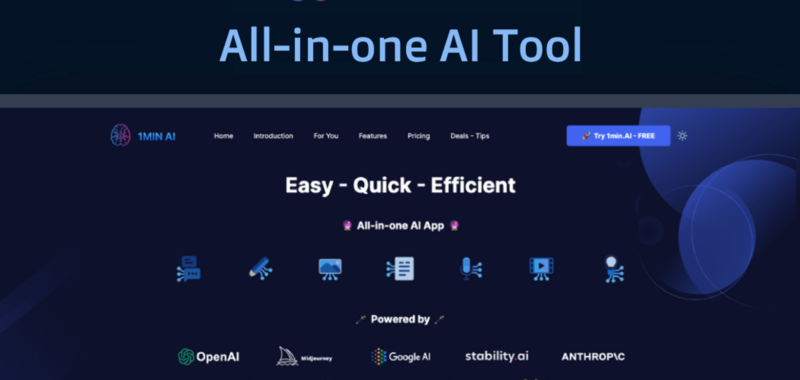Has ChatGPT gotten too comfortable being the world’s favorite AI? We think so. Because a new contender has entered the arena, armed with more models and capabilities—ready to fight for that #1 spot.
Introducing 1minAI, an all-in-one AI tool powered by OpenAI, Anthropic, Google AI, Meta AI, and more. Instead of paying separate subscriptions to all these platforms, you can use them all in one organized dashboard for a one-time $39.99 payment (reg. $234). You won’t find a lower price.

How does 1minAI work?
Let’s say you want help writing an article for Popular Science (not this one, of course). Instead of striking up a conversation with ChatGPT, just open 1minAI:
- Click on the AI article generator.
- Choose an AI model: GPT, Gemini, Claude, Command R, or LLaMA.
- Specify the tone, keywords, and number of words and sections.
- Fill out the “Content” section to provide details about the article.
- Click “Generate Content.”
You might also generate an AI image for the article with DALL-E, Midjourney, Leonardo, or Stable Diffusion.
And that’s just the tip of the iceberg—1minAI has AI tools for working with audio, translations, videos, PDFs, keyword research, grammar revisions, and so much more. Of course, you never have to pay again to explore any of these tools.
How is all of this possible?
While you don’t have to pay subscription fees for 1minAI, you are limited to a certain number of monthly credits. These allow you to generate around 40 articles or 15 images per month, depending on which model you’re using and how demanding your requests are.
You can also earn additional free credits by visiting the web app daily, leaving reviews, and referring others to 1minAI.
Get your new favorite AI tool at this unbeatable price: 1minAI lifetime subscription for $39.99 (reg. $234).

1minAI: Lifetime Subscription – $39.99
See Deal
StackSocial prices subject to change.
The post Is this new AI taking ChatGPT’s place? appeared first on Popular Science.

